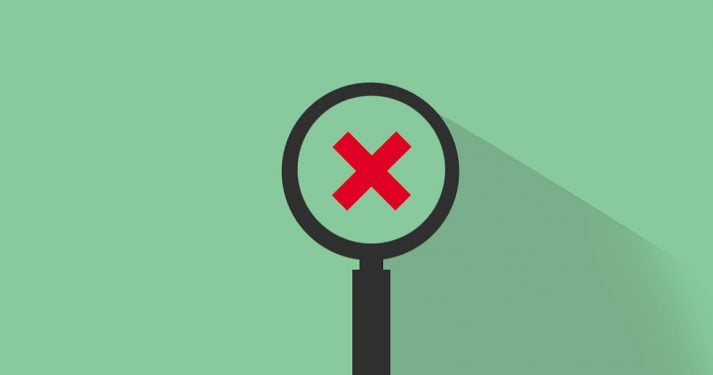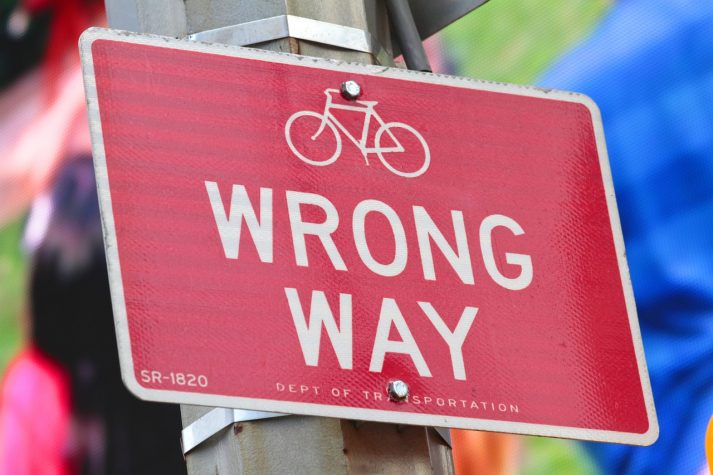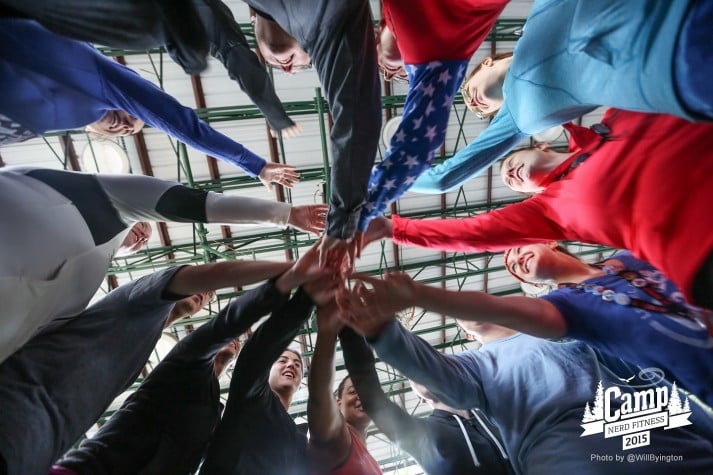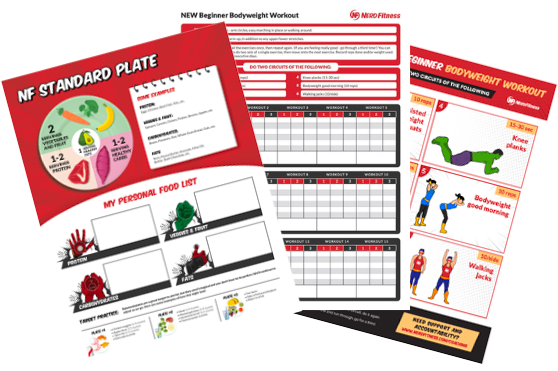
“Your opinion is irrelevant! I’m correct! Look at this study!”
Whether it’s Paleo vs Vegetarian, Stretching vs Mobility, Fat vs Carbs, Cardio vs Strength, Star Trek vs Star Wars, or Captain America vs Iron Man, we all have belief systems that cause us to accept certain ideas and immediately discredit others.
Go to any article on any of the subjects above and spend five minutes in the comment section, and you’ll see people either championing the article or skewering it and destroying the other side.
Can both sides be right? Can both sides be wrong? Why is it that whenever we read something that goes against what we say, we stick our heads in the sand, ostrich-style, and discredit it, only to turn around and proudly share any news that reaffirms our beliefs?
Would you be able to recognize when you held a wrong belief? Do you have the clarity to hold strong when you are in fact, right?
Gaining the right mindset to discern what’s real from what’s BS requires us to admit two big things to ourselves:
- I don’t know shit.
- Nobody else knows shit either!
Nobody knows nothin’

Throughout history, everything we know and have learned generally builds on the work of others before us.
When we learn something like simple math, we take what we’re taught as facts and it makes sense: 1 + 1 = 2. Awesome.
In other subjects, be it geography or physics or biology, humans have taken what we’ve been taught as fact, not realizing that those facts aren’t actually “factual.” Sometimes they are partially true, and sometimes they are totally, 100%, off the mark. For instance, people assumed for thousands of years that the earth was flat and that it was only a few thousand years old. Many based their careers or life’s work operating under these assumptions until somebody asked and tested, “hey, maybe this thing we’re on is round?”
Mind = blown.
If you’re like me, you look at people who were SURE the world was flat and thought, “Ignorant fools! How could you be so blindly wrong for so long and not even realize it?” It’s easy to look back on the ‘dark ages’ and say “they didn’t know any better…” but what if some of today’s universal truths aren’t actually true either!?
Ruh roh.
Imagine if someone came along and told you something that conflicted with your world view in a serious way; like if gravity was a complete illusion. You can just feel our natural aversion towards something that contradicts what we think we know. You block it out, discredit it, and/or try to find somebody to prove that person wrong so you can go back to feeling like everything makes sense.
That’s a dangerously (very)old-school way of thinking, and we nerds need to be better! Elon Musk, the world’s most popular nerd right now and CEO of both Tesla Motors and Space-X, champions “reasoning from first principles” – aka “don’t make a single assumption, question everything”:
I think generally people’s thinking process is too bound by convention or analogy to prior experiences. It’s rare that people try to think of something on a first principles basis. They’ll say, “We’ll do that because it’s always been done that way.” Or they’ll not do it because “Well, nobody’s ever done that, so it must not be good.” But that’s just a ridiculous way to think.
Reasoning from first principles is not practical for most of us for most things (we accept advice and knowledge from experts in certain fields or those we trust, as we don’t have time to reason from first principles). However, keeping this concept in mind can help us see our own blindspots in every area of life.
If we aren’t vigilant, sometimes our collective human nature can lead us down some very wrong paths. Not that we would everrrrrr do such a thing!
As Tim Urban hilariously points out on Wait, But Why, this is perfectly illustrated in the children’s story, The Emperor’s New Clothes:
An authority figure (the Emperor) is told by a visiting fashion designer that his new amazing clothes are invisible and can only been seen by the coolest people. So, the Emperor parades naked in front of his people: “Of course I’m wearing clothes, you can only see them if you’re awesome.”
What happens? The general population stares at the naked Emperor all thinking the same thing: “This dude appears naked to me. I must not be awesome. But I don’t want others to know that.” But, outwardly, they all exclaim: “I am awesome! I see the clothes! Looking good emperor!”
One brave or weird guy realizes: “Maybe he’s just naked and all of these people are lying because they don’t want to sound stupid? Maybe the smart Emperor got bamboozled.”
This is called the: “This doesn’t seem right to me but everyone else says it’s right so it must be right and I’ll just pretend I also think it’s right so no one realizes I’m stupid” phenomenon. If you’ve heard of the Asch experiment, then you know we humans often feel an internal desire to conform and will make a wrong decision if everybody else has picked the wrong one too! In short, we would rather be wrong as a group than face ridicule or risk looking stupid if we go against the herd (even if we 100% believe ourselves to be right).
So let’s see how reasoning from first principles factors in to our own health and fitness. We operated for DECADES under the assumption that fat was bad, that squatting deep is bad for your knees, that skim milk is better for you than whole milk, that cholesterol was bad, that you should NEVER skip breakfast, and so on.
In fact, go back and read early articles on Nerd Fitness from 2009, and you’ll see me promoting the same “heart healthy whole grains” logic promoted by conventional wisdom. Reading that article last week, I can’t help but apologize to readers back then and chastise myself: “Gah! Baby-faced Steve, What were you thinking?! Where did you go wrong you sweet, sweet fool?”
Simple: I started with the assumption that conventional wisdom was actually wise and then based everything else off of that! Luckily, I did more research and eventually became smart enough to learn “hey I don’t know shit,” (and maybe more importantly, “nobody else knows shit either!”).. allowing me to alter my viewpoints.
Can you see an uncomfortable truth?

The book Persuadable by Al Pittampalli presents the most compelling argument I’ve ever read about the importance of being able to change one’s mind in light of new evidence.
With the political machine covering the upcoming election in full speed, every candidate gets accused of being a flip-flopper as a MASSIVE negative. We’re told that anybody who changes their mind isn’t fit to lead because they can’t be trusted or aren’t strong enough to “stick to their guns.”
Al begs to differ: Being able to change your mind based on new evidence or experiences is a positive. Isn’t that what we want in a leader? Somebody who doesn’t blindly stay the course when overwhelming evidence to the contrary? In other words, changing your mind and consistently testing your foundational beliefs will help you grow and learn and succeed in life.
Unfortunately, this is incredibly difficult because our minds put up one HELL of a fight.
They reflexively don’t want to believe we’re wrong, and go to great lengths to keep seeing the world in the same way. One of the ways we do this is to align ourselves with a “tribe” that can help protect our views – both the right ones and the wrong ones. We’ve been aligning ourselves in an “us” vs “them” mentality since Fred Flintstone days – back then it was for survival purposes, but these days its often for social acceptance!
As Tim points out in that previously linked article: Try to express a change of heart that aligns you on a certain topic with whoever your tribe considers to be “Them”:
- If you’re a religious Christian, tell people at church you’re not sure anymore that there’s a God.
- If you’re an artist in Boulder, explain at the next dinner party that you think global warming might actually be a liberal hoax.
- If you and your husband are staunch Republicans, tell him you’re coming around on Obamacare.
Unsurprisingly, say any of the above things and you’ll probably see a look of horror or be banished from the tribe. Unfortunately, every tribe – including Nerd Fitness – has had its share of sacred cows that are partially or completely untrue.
Gah, so what are we to do about it? How are we to grow and implement better ways of living when we ourselves are captured by this knee-jerk, belief-defending reaction whenever anybody says anything that goes against our beliefs or threatens the identity of a tribe we’re a part of?
How to Be Persuadable

From five star generals to top psychologists and teachers to business leaders, people primed for success, growth, health, and happiness are those that can be persuadable when the situation calls for it. Here’s how you can be like them:
1) Be Actively Open Minded: Actively open-minded people are in a hurry to find out the truth, no matter what it is, good or bad. Compare this to what most people do: when we come across data suggesting that our belief is wrong, our brain is quick to dismiss the new data, rather than throw out the existing belief and expend the energy involved in rebuilding and recovering from this discovery.
A simple example: Your tooth hurts. You know that if you go to the dentist he’s going to find a cavity and have to drill and give you a filling. So, you choose instead to not go to the dentist: “can’t get a cavity if I don’t go!” Sounds absurd, right? And yet we all do stupid things like this! When we’re presented with information that we don’t like, or a study that doesn’t line up with our foundation, we immediately discredit it, stick our fingers in our ears, or avoid it as long as we can rather than confronting the issue, often compounding the problem.
The problem is, most of the time we do this so quickly that we aren’t consciously aware we’re self-sabatoging – putting our heads in the sand. Whether we’re talking about the dentist or a study that conflicts with our belief-system, it requires a real effort to overcome the…
2) Beware confirmation bias: We actively seek out information that proves what we already know to be true, and dismiss anything that speaks against us. We call this “confirmation bias,” and we see it anywhere. Anybody who has seen Making a Murderer on Netflix is quite familiar with our ability as humans to come up with information to fit our beliefs rather than the other way around.
See our most recent example from our article on rice. If you strongly believe already that rice is good or bad for you, you can grab one of the following studies to prove your point:
When we read, hear or see something that goes against our beliefs, we skip right past the details and try to find somebody that is also railing against the study. Or, we just read the articles that reaffirm our beliefs to make sure our worldview stays in tact. No more! We need to be our own watchdog, and make a determined effort to see our tendency to believe what we already believe rather than have a healthy skepticism of everything.
3) Incrementally shift your perspective: Changing your belief isn’t easy. It can feel a bit like making a major lifestyle/exercise change. This is because our brains love to think in binary (it’s easier), and the reality is that life is operates in much murkier territory. “Eating meat gives you cancer! No! eating mostly meat is the healthiest thing you can do!” “Carbs will kill you! Wait, fat will kill you!”
The truth is most often more complicated than that:
- Meat can be good or bad based on the source, how it’s prepared, and what it’s consumed with.
- Carbs can be good or bad based on the source, how it’s prepared, and what it’s consumed with.
- Fat can be good or bad based on the source, how it’s prepare, and what it’s consumed with.
Just as I had my foundational core shook with my exposure to the principles of Paleo Diet and Intermittent fasting (skip breakfast? blasphemy!), I have incrementally shifted my perspective since then to realize nothing is black and white. I’ve found a strategy that works for me (Paleo-ish) and something different might work for somebody else.
If you find yourself using all or nothing, absolute language, that may be a sign you need to be more persuadable.
4) Confront your “darlings” directly and with intention. Sometimes our beliefs are such a huge part of how we see the world, that changing our minds can drastically alter how it feels to be “you.” Who are you if you flip-flopped to being a Republican instead of a Democrat (gasp!) or vice versa. What will people think if you change from being a Vegan to a Paleo person or from a meat-lover to vegetarian (HERESY!)? Think about a core belief in your life – maybe it’s related to politics, health and fitness, or whether Star Wars or Lord of the Rings is the ultimate nerd trilogy.
If you stumble across information or have an experience that makes you think something you hold core to “you” might be wrong – you can either discard it at your own peril, or you can realize that you’ve opened the door to a new life and that old ‘belief’ doesn’t define you – that you can change your mind and it doesn’t make you a bad person.
When we encounter this information naturally in the world – a conversation with a friend, a documentary, an article – we react reflexively. Our automatic brains take over, and we don’t have a chance of looking at the thing honestly. That’s why it requires a separate, dedicated inspection. Think about these things in your life, and go out looking for why you might be wrong.
Which means we need to do our best to not try and fit our identities into rigid beliefs from a tribe we’re a part of. Instead, we need to align ourselves as a tribe of scientists: everything should be questioned, and all hypotheses should be tested.
If we find out that something is wrong or that new information requires us to change, we will adapt! No earth-shattering questioning of our human soul required: we will test, learn, adapt, change, grow.
And smile every once and a while – don’t take everything so damn seriously!
The Nerd Fitness Tribe

Welcome to the Nerd Fitness Rebellion: a community of nerds and average Joes and Jills, built on a foundation – not an ideology – of support and a healthy questioning of conventional wisdom.
One of the founding principles of our community is that we question everything. Also we love our Game of Thrones. George, please finish writing The Winds of Winter soon!
But some of us don’t like Game of Thrones. Likewise, what works for the majority of people in the NF community might not work for you (and that’s okay too!). If you want to try a new way of eating, training, or try something different than what you’ve read here, TEST THE HYPOTHESIS on yourself and see if it works!
Be your own authority:
- Are you healthier?
- Are you happier?
- Do you feel more confident in your skin?
If it worked, keep doing it! In fact, keep doing it until it doesn’t work anymore, and then incrementally shift your approach as you conduct new experiments. Be a scientist that is always learning and questioning and analyzing and adapting.
If you’re curious, here’s what we stand for as a Rebellion:
- We are actively open-minded and aware of confirmation bias that we all have.
- We are skeptical of conventional wisdom. Wisdom is based on the past, and it’s often years behind reality. We do believe our eyes and ears and experience and experiments. If you told me 9 years ago: “Steve, don’t eat breakfast, fat is good, cholesterol is not the villain, it’s healthy to skip meals, and fruit juice is sugar water,” I would have looked at you like you’re crazy.
- We make incremental improvements to our philosophy. I can’t promise what you read on Nerd Fitness this month will still be true four years from now. In fact, I hope it’s not! We’re going to continue learning and adjusting and fighting for better lives and always keep looking for the truth.
- We are cautious not to develop dogma. It should not determine our identity as a community. We are all scientists trying hard to support each other on our own quests to find out what method to health and happiness works best for us. We don’t attack other communities for their contrarian beliefs or employ an “Us vs Them” mentality for members of our community that don’t line up with our personal beliefs. We’re all in this together, and we’re in for life.
- We don’t engage with trolls: We get very angry emails from people who are all-in on another dogma (full paleo, fruititarian, vegetarian, vegan) and feel like their identity is being called into question if we present a viewpoint different than their rigid philosophy. Because somebody is wrong on the internet, they feel it’s their duty to call us out. To those people, we say genuinely: “sounds like you found something that works for you, congrats!.” Life is way too short to spend time on this.
I would love to hear from you:
- What’s one thing you’ve been fundamentally wrong about in the past that you have come around on?
- How did you cope and deal with it?
- How did you finally get through to your brain: “Hey, maybe this contrarian viewpoint has a point, maybe I don’t know shit…”
-Steve
PS: A big shout out to the two authors that inspired this post: Tim Urban of Wait, but Why (one of my favorite sites on the internet), and Al Pittampalli, author of the thought provoking Persuadable.
###


